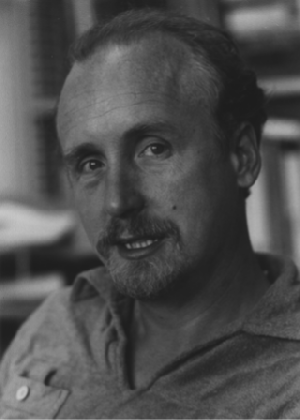| |
- Homeokinetics
The Physics of Complex Systems
-
- Professor of Anthropology
- University of California at Irvine


Dr. Douglas White
Synopsis of background:
Dr. Douglas White is a Professor of Anthropology at the University of
California at Irvine. Trained at the University of Minnesota and as a CIC
Travelling Scholar at the Universities of Michigan and Columbia, Dr. White has
done field research of Ojibwa Indians, societies in Veracruz and Tlaxcala
Mexico, Ireland, and Austria. Dr. White has over 100 publications in
peer-reviewed journals and numerous NSF and other grants. Research interests
include social networks, mathematical anthropology, cross-cultural, longitudinal
field-studies, and complex systems research in historical dynamics. On numerous
editorial boards, Dr. White is a Fellow of the American Anthropological
Association and the Society of Applied Anthropology, a Distinguished Senior
Scientist recipient of the Alexander von Humboldt award, and the founder of the
World Cultures and the Structure and Dynamics journals published by University
of California eScholarship and sponsored by the
Institute of Mathematical
Behavioral Sciences. He is the general editor of Structure and Dynamics and
the founder and sysop of the complexity sciences Media wiki,
InterSciWiki
http://eclectic.ss.uci.edu/~drwhite/6WWWVIT.html
On Homeokinetics:
"In anthropology the homeokinetic approach had an impact in comparative work
designed to develop and test new theories. Concepts of social processes employed
in ethnographic studies were reformulated as linkages that operate at various
nested spatial and temporal scalings.This involved abandonment of the classical
idea of ethnography, written in an 'ethnographic present' as a self-contained
unit of local space-time-social action-culture, a shift that is in keeping with
contemporary ethnography. Social processes, then, come to be seen as occurring
in a field of social action that is open at any number of levels, with boundary
conditions shifting with real-time historical processes. In contemporary
comparative studies, the counterpart to this multilevel conception of
space-time-action embedding is that field study has a temporal dimension of
changing relationships and interactions embedded in networks not only of
relations within the social unit and its constituents but in outside linkages to
larger historical levels and processes. Such comparative studies represent a
radical departure from classical comparative research in anthropology in its
several varieties. Previously, cross-cultural theories were tested by comparison
of ethnographic units as if they were frozen in time, or static observations
were used either to reconstruct shared history (Kroeber) or to treat shared
history as if it could be a quasi-experimental control in making testing
structure-functional hypotheses (Eggan, Radcliffe-Brown). The approach
stimulated by homeokinetics takes a multilevel dynamic networks approach to
comparisons. Some of the work now being done by D. White and colleagues at UC
Irvine, Cologne and the Universities of Paris, for example, uses a dynamic
representation of marriage, reproduction and kinship networks interacting with
flows of property, office, occupation and education along this network scaffold
(inheritance, succession, socialization) as well as through institutional
network mechanisms of recruitment, identification, dependency, predation and
exchange, including systems of marriage exchange. Long term fieldwork settings
are used to study the various temporal and spatial scalings of these operations
and how they are related in understanding social change, power, and economic
processes."
Basing new theories on a series of hypotheses about causal effects of
cohesion in social networks on more general concepts and measures developed with
graph theorist Frank Harary and sociologist James Moody, and working with
sociological collaborators, White developed a new line of sociological research
building on results of the previous ethnographic studies. These studies have
dealt with cohesive groups as a support for complex task performance, success in
large-scale kinship networks in complex societies, educational systems
(prediction of school attachment), integration and fragmentation in social
groups, corporate and political party interlock and potential collusion, lines
of transmission in science, collaboration, innovation, and market/nonmarket
pricing in industry, the dynamics of trade and city growth/decline in relation
to trade and warfare, growth/deline in empire and forms of cohesive resistence,
longitudinal study of structure and dynamics in the world economy (both in the
Medieval Renaissance and in the contemporary period of globalization, and
metastable oscillatory dynamics generally. Two of these studies have won prizes
from the American Sociological Association, one as a best paper in Mathematical
sociology, and the other in Economic sociology.
return home
|
|